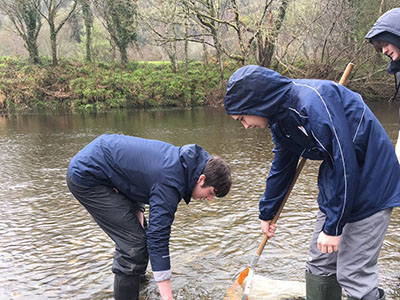This course provides an ideal base for employment, for example, ecology and wildlife conservation, land management, town planning, architecture, forestry, geology or climatology. Students could work for a charity like Greenpeace or work for a Wildlife Trust. There are also opportunities in environmental management and the growth industry of environmental sustainability.
Alternatively students could use their A Level in Environmental Science as the stepping stone for Higher Education in a wide range of courses, including degrees in Land Management, Wildlife Conservation, Geography, Geology, Marine Science, Climate Studies, Teaching or a degree in Environmental Science. This subject is a rigorous science A Level and therefore works best when it is taken alongside another science based subject e.g. Geography, Geology, BTEC Science , Biology, Chemistry, Physics or Maths. We also require our students to take Core Maths.
Compulsory field trip: Friday June 7th – Monday 10th 2024 (approx. £400)


